Automakers, suppliers, and even the government are painting the autonomous vehicle picture. Sooner or later, it seems, we will find autonomous vehicles in our driveways and on our highways. However, during a recent appearance on the Playing N Traffic Show with Lou Santiago and Louis Lee, we discussed the limits of autonomous driving.
We thought the technology responsible for the automated controls of the car will be prone to failure in time – and if so, what happens then?
Just as you would change a faulty oxygen or steering angle sensor today, logically you can conclude the same with autonomous driving sensors. And if they fail in the middle of the autonomous drive when you’re not holding the wheel, then what? Would that variable put you in danger and if so, is there a fail safe?
I’m all for autonomous driving and want to believe it will be, as often credited, safer and more enjoyable. While I do think we need to be careful in how we approach autonomous driving, I am confident the host of talented people working on the technology are doing so with our best interest at heart.
However, my confidence does not translate into consumer confidence, especially with technology.
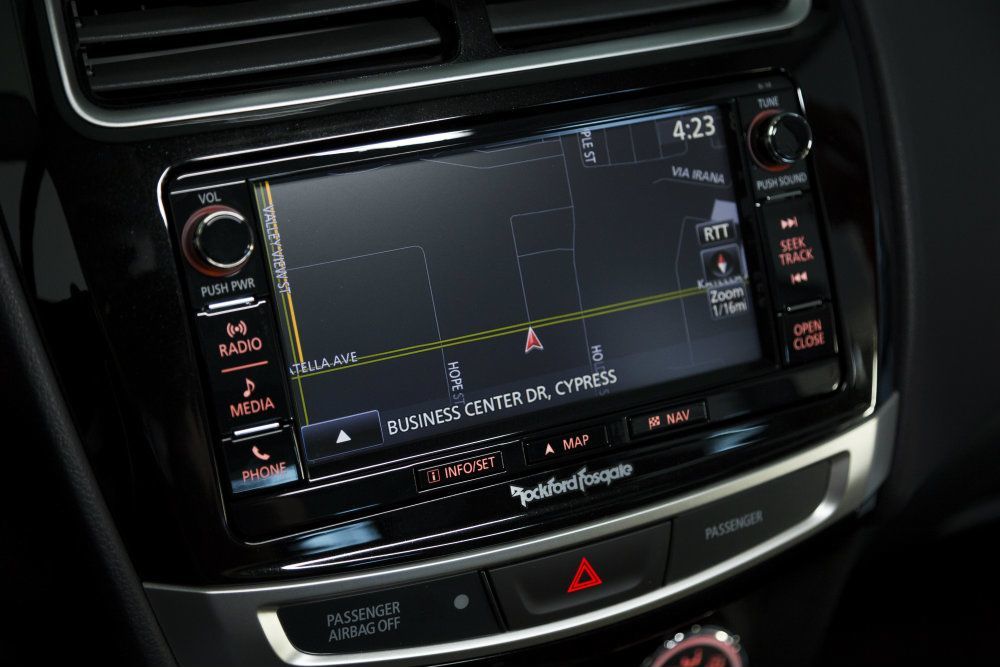
Reliability & Trust Factors
Problems with technology continue to affect vehicle reliability according to the J.D. Power 2016 U.S. Vehicle Dependability Study. The number of problems collectively labeled as audio, communication, entertainment, and navigation, or ACEN, has increased. It now accounts for 20% of all customer-reported problems in the study making ACEN the most problematic area on most vehicles. It’s also the cause of the industry’s 3% year-over-year decline in vehicle dependability.
“The increase in technology-related problems has two sources,” said Renee Stephens, Vice President of U.S. Automotive at J.D. Power. “Usability problems that customers reported during their first 90 days of ownership are still bothering them three years later in ever-higher numbers. At the same time, the penetration of these features has increased year over year.”
The problems most often reported by owners deal with either Bluetooth paring or voice recognition. And it seems, when compared to autonomous driving, especially factoring in the infrastructure requirements, connectivity technology in the dashboard isn’t near as complex. Or in the words of one reader responding to an article I wrote on autonomous driving: “when automatic faucets work in the bathroom with 100 percent accuracy, then I will trust my car to do it.”
“If you think about the technology problems from the study in the context of conversations around autonomous vehicles, the industry clearly has more work to do to secure the trust of consumers,” Stephens said. “Right now, if consumers can’t rely on their vehicle to connect to their smartphone, or have faith that their navigation system will route them to their destination, they’re certainly not yet ready to trust that autonomous technology will keep their vehicle out of the ditch.”
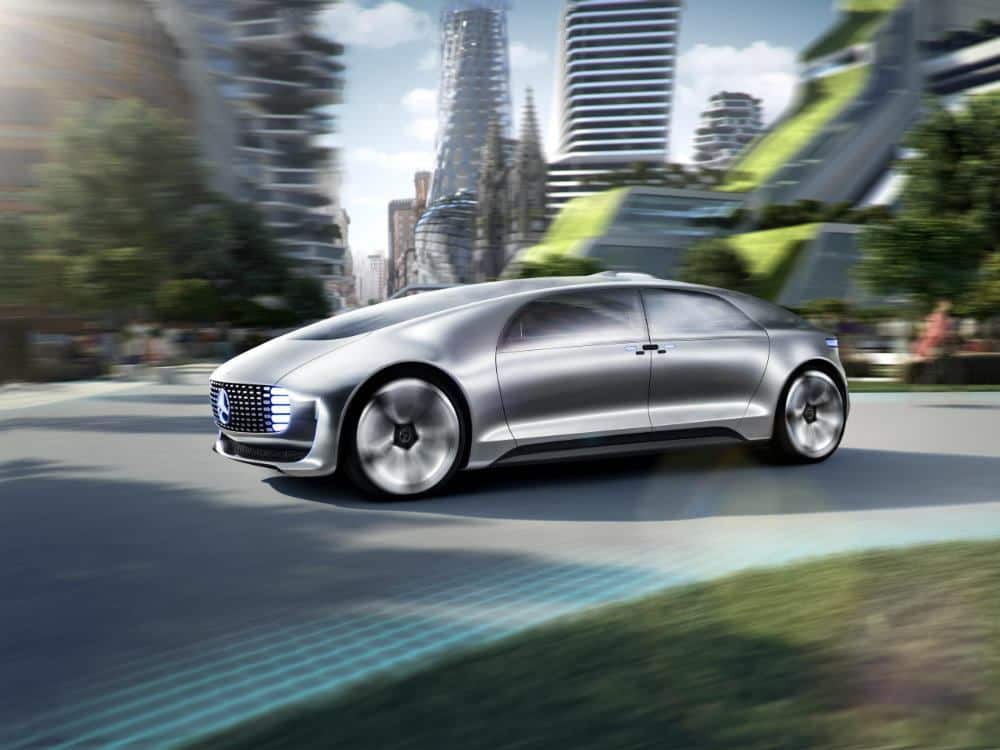
A 2013 J.D. Power U.S. Initial Quality Study showed reliability was a critical factor for car buyers. More than 50% cite reliability as one of the most influential reasons for choosing a specific make and model. At the same time, concerns about reliability have risen this year as a reason to avoid particular vehicles. According to the National Highway Traffic Safety Administration, a decline in reliability, combined with a record number of vehicle recalls and safety-related complaints, have hindered consumer confidence.
Among owners who experienced no problems with their vehicle, 55% purchased the same brand again. In contrast, only 41% of owners who experienced three or more problems stayed with the same brand. Additionally, only a third of owners who had to replace a component outside of normal wear items said they would definitely repurchase or lease the same brand again.
“Dependability has a direct impact on purchase decisions and brand loyalty,” Stephens said.
Highest-Ranked Nameplates
Overall dependability is determined by the number of problems experienced per 100 vehicles (PP100), with a lower score reflecting higher quality. The study covers 177 specific symptoms grouped into eight major vehicle categories.
Lexus is the highest in dependability for a fifth consecutive year, with a score of 95 problems per 100 vehicles. Porsche, with a score of 97 problems per 100 vehicles, moves up from fifth in 2015. Following Porsche is Buick, Toyota, and GMC.
Key Study Findings
The overall industry average is 152 problems per 100 vehicles this year, compared with 147 problem per 100 vehicles last year. While engine and transmission problems decrease to 24 PP100 this year from 26 PP100 in 2015, seven of the top 10 problems are design-related. Design-related issues account for 39% of problems reported in the study (60 PP100), a 2-percentage-point increase from 2015.
Among owners who experienced a Bluetooth pairing or connectivity problem, 53% said the vehicle didn’t find or recognize their mobile device. Those who reported having a voice recognition problem, 67% say it was related to the system not recognizing the verbal commands.
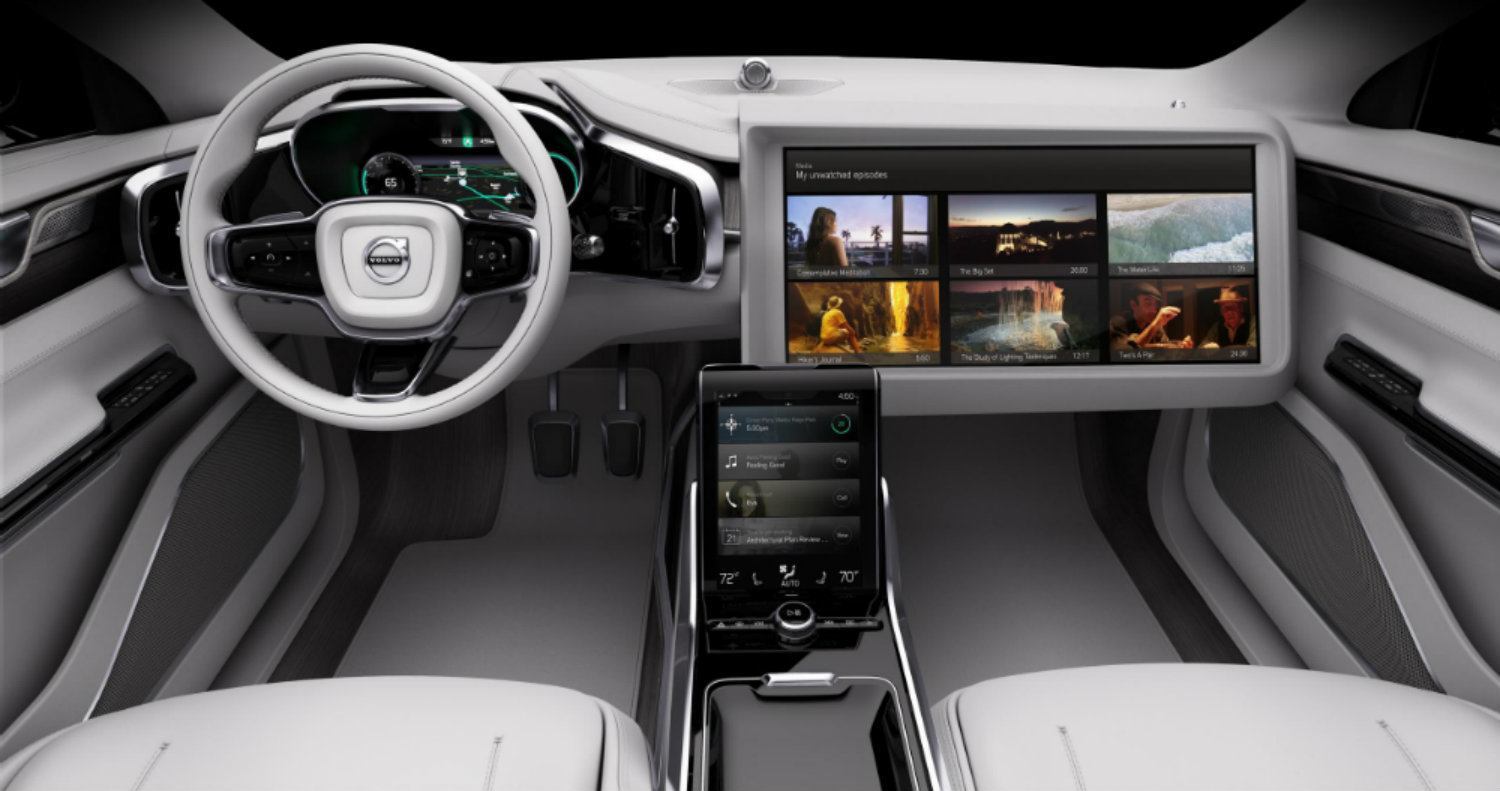
Takeaway
I’m a believer in automotive manufacturing and technology, and while I think there is room for improvement, I do find vehicles today much better than when I first entered the business in 2009. I use my 2015 Ford Fusion Titanium as an example: it’s more enjoyable to drive and more fuel efficient than the Fusions I used to sell at Sioux Falls Ford. There are drastic improvements with Sync and personally, I rarely have issues with my Bluetooth.
The results of this J.D. Power study, while revealing, are not necessarily surprising. The challenge for those of us in the automotive industry is being brutally honest with ourselves when necessary. We need to always develop products and technology with the golden rule of business in mind: the customer. The J.D. Power study illuminates the benchmarks, from which, if we stay the course, may indeed bring about the near-Utopian marraige of autonomous driving and customer satisfaction.
*Carl Anthony is Managing Editor of Automoblog and resides in Detroit, Michigan.
- Graphics courtesy of J.D. Power & Associates. The 2016 U.S. Vehicle Dependability Study is based on responses from 33,560 original owners of 2013 model-year vehicles after three years of ownership. The study was fielded from October through December 2015.
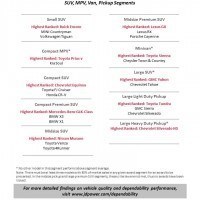
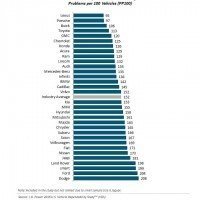
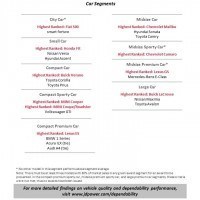
from Automoblog.net http://www.automoblog.net/2016/02/24/jd-power-study-reliability-autonomous-driving-concerns/
via IFTTT
from Tumblr http://peternpalmer.tumblr.com/post/139944280721
via IFTTT
No comments:
Post a Comment